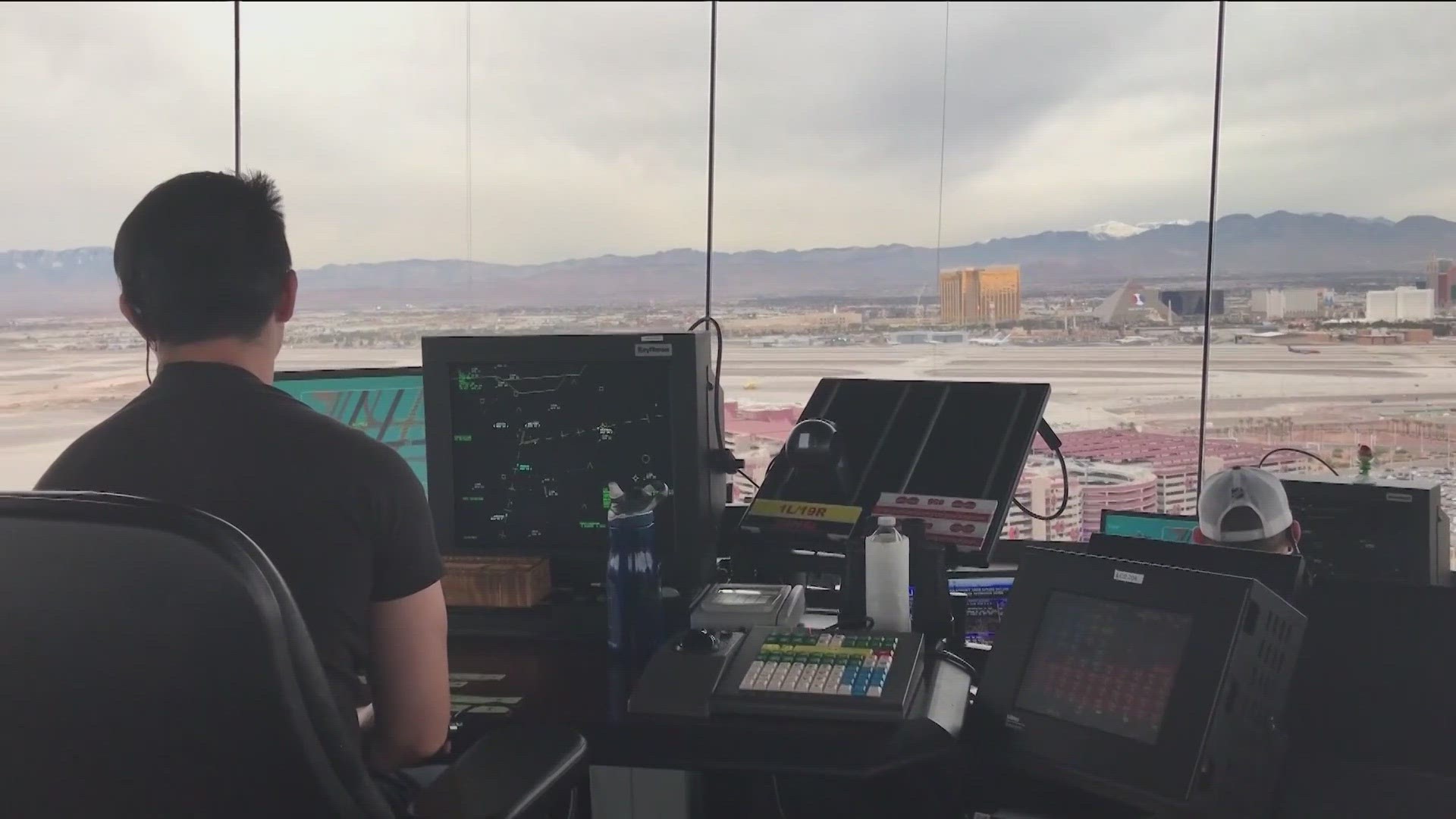SAN DIEGO — A shortage of air control center workers led to some flight restrictions for non-airliners surrounding San Diego International Airport on Tuesday
Chopper 8 and all other civilian, non-commercial flights were denied access to the most restrictive airspace surrounding the airport, known as "Class Bravo" because of 'staffing limitations'.
While this highlights the nationwide shortage of air traffic controllers, one local aviation expert said that these flight restrictions are all being done in the name of safety.
"If they don't have enough people, they can't open those positions," said Kevin Karpe, CEO of Diverse Vector Aviation Consulting, based in North County. He previously worked as an air traffic controller and manager for the FAA for more than three decades.
"If they're barring the helicopters from Class Bravo airspace, that's because they don't have that position available," Karpe told CBS 8, "They don't have enough people to provide that exact service, so in the name of safety, the FAA and the towers are going to restrict those services that they can deliver because they can't deliver them with the utmost safety in mind."
Karpe pointed out that this is the safest time to fly in the history of the U.S. national air space system, with no fatal crashes of a major U.S. airliner in the past 14 years.
"The controllers are doing a great job with the resources that they have, and the pilots are doing a great jobs as well," he added. "They have these situations that pop up from time to time and you always have."
Among those situations is a near-miss at San Diego International earlier this month, when a private plane nearly landed on top of a Southwest flight, which is still under investigation.
A recent investigation by the New York Times finds that last month alone, there were 46 close calls nationwide involving commercial airlines, and that these 'close calls' happen far more often than previously known.
The investigation also pointed to mistakes by air traffic controllers, impacted by a nationwide staffing shortage, as one major factor.
Karpe believes the industry never fully recovered from the 1981 air traffic controllers' strike when former President Ronald Reagan fired over 11,000 controllers who were on the picket line.
"It's the staffing and training and expertise and oversight.. it's all one big package that needs to be addressed," Karpe said.
He added that it is going to take a Congressional mandate to provide the funding needed to make up for this shortage.
The Biden administration said it is currently seeking funding to hire and train more air traffic controllers.
WATCH RELATED: Alaska Airlines flight attendants picket for better pay

